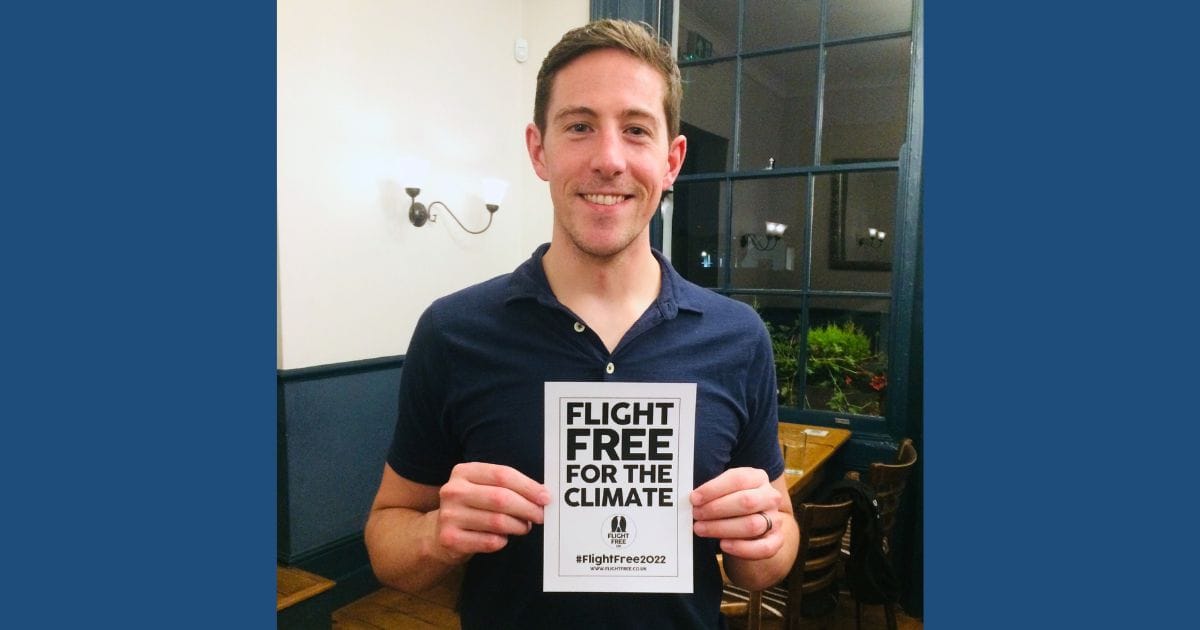It’s been a year since I boycotted Trinity College Choir’s tour to Canada.
My decision came as a shock to my choir director.
'I just can't justify the emissions,' I told him, hastening to add that, 'It's not that I love choir any less – I really do want to do this for the rest of my life, but sustainably, and with a clear conscience.' I left his office with his silence ringing in my ears.
The decision wasn’t intended as a boycott, rather as a personal, ethical choice. I was sad to think my friends would have fun without me, but this wasn’t a whim, and I knew I wouldn’t regret not going. I’d said my piece and explained my decision over tea and cake with the other altos. It felt like courage.
I was sad to think my friends would have fun without me, but this wasn’t a whim, and I knew I wouldn’t regret not going.
I was in my final year studying modern languages at Cambridge (French, German, and Polish) and had participated on the choir’s USA tour the previous summer. I’d sung my heart out, explored big cities with my best friends, and cried at the mindless onslaught of single-use plastic cutlery, packed motorways, hotel air-con and flights in and out of all-but-identical airport terminals.
I was meant to be doing my favourite thing in the world, so why did I feel so upset? To get on a plane to Canada the following year would have been a betrayal of my newly emerging climate conscience.
Everything went quiet for a bit. Next thing we knew, the entire choir tour was cancelled. A UK cathedral and outreach tour was now being planned for summer 2020. I couldn’t quite believe it. I hadn’t campaigned for all-out cancellation. I had just stated the science with all the passion I could muster, and said I wouldn’t be going. Yet I felt the proudest I had in my entire life. My one small act of resistance, my “radical” act, had penetrated the seemingly untouchable collegiate choir structure.
I felt the proudest I had in my entire life. My one small act of resistance, my “radical” act, had penetrated the seemingly untouchable collegiate choir structure.
Understandably, many members of the choir, my friends, were confused and frustrated by the Canada cancellation. Why hadn’t everyone been consulted? Why does Trinity’s tour matter when the plane will fly anyway? Isn’t all our music printing the real problem?
Worse, it quickly became clear that the cancellation wasn’t made in the spirit of change, but quietly, somewhat apologetically, and with the promise of a big 10-tonnes-of-carbon-per-person Australia tour the following summer.
None of us felt we had a safe space to talk to each other about the cancellation, climate change, or our role as musicians within a carbon-heavy industry. I couldn’t bear the feeling of confrontation every time it came up with my friends. The unspoken question was, “Why are you spoiling it for everyone?” My unspoken answer was, “Surely giving up a free tour demonstrates just how important this is, in terms of environmental and social justice, and how by taking a stand we can challenge the status quo?”
I would love young musicians to know that we have more power than we think – whether it be asking awkward questions, engaging in conversations about change, climate or social justice, or holding the music industry accountable. My decision was made thanks to conversations with Bridget McKenzie from Climate Museum UK and Lola Perrin from ClimateKeys. They told me I wasn’t mad to be worried about climate change. I wasn’t doing anything wrong by refusing to tour. I cried with relief.
I would love young musicians to know that we have more power than we think – whether it be asking awkward questions, engaging in conversations about change, climate or social justice, or holding the music industry accountable.
Other actions in the music sector give me hope: The Orchestra of the Age of Enlightenment’s eastern Europe tour by train, Opera North’s lockdown carbon literacy training, and the Dunedin Consort’s bold environmental policy, as well as by the work of music consultancy organisations such as Julie’s Bicycle and Creative Carbon Scotland.
Also hopeful are the survey responses I gathered in the summer, which asked ‘Do Cambridge choirs have a flying problem?’ Sixty-seven percent of 124 Cambridge choral scholars agreed that ‘Choir tours must be decarbonised as soon as possible’, as well as over half suggesting their choice of choir was not affected by the tour offer, and that they would be in favour of travelling only by train to tour destinations in Europe. It looks as though emerging classical musicians might yet be part of the solution, not the problem.
Climate change is beyond my control, as is, in large part, changing other musicians’ minds and habits, but I can control my choices.
Climate change is beyond my control, as is, in large part, changing other musicians’ minds and habits, but I can control my choices. I believe that we can alter the way we tour and that doing so doesn’t have to be a sacrifice. I’m going to ask to take trains, ferries and electric buses, I’m going to ask to stay with real people instead of in hotels, I’m going to ask that venues and tour managers are environmental allies, I’m going to ask about carbon literacy training, and I’m going to fight not to take no for an answer.




